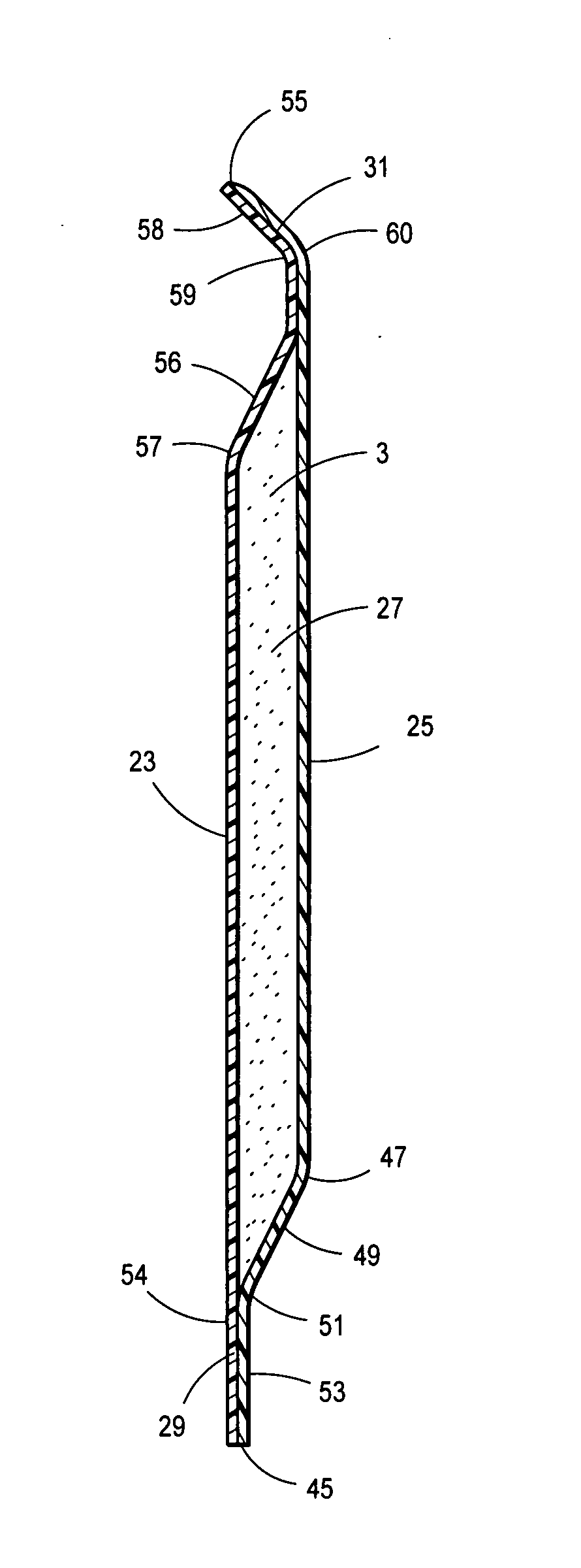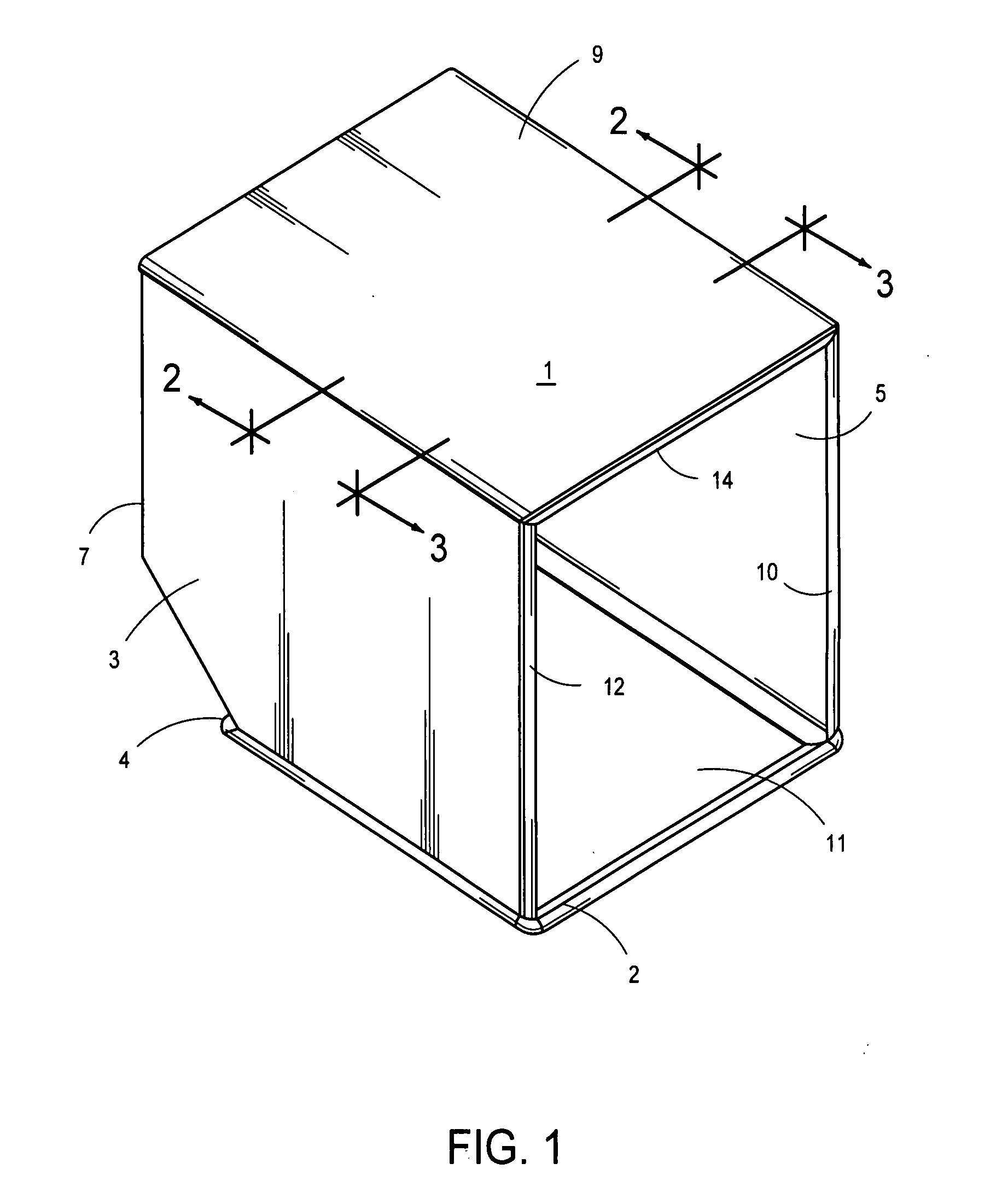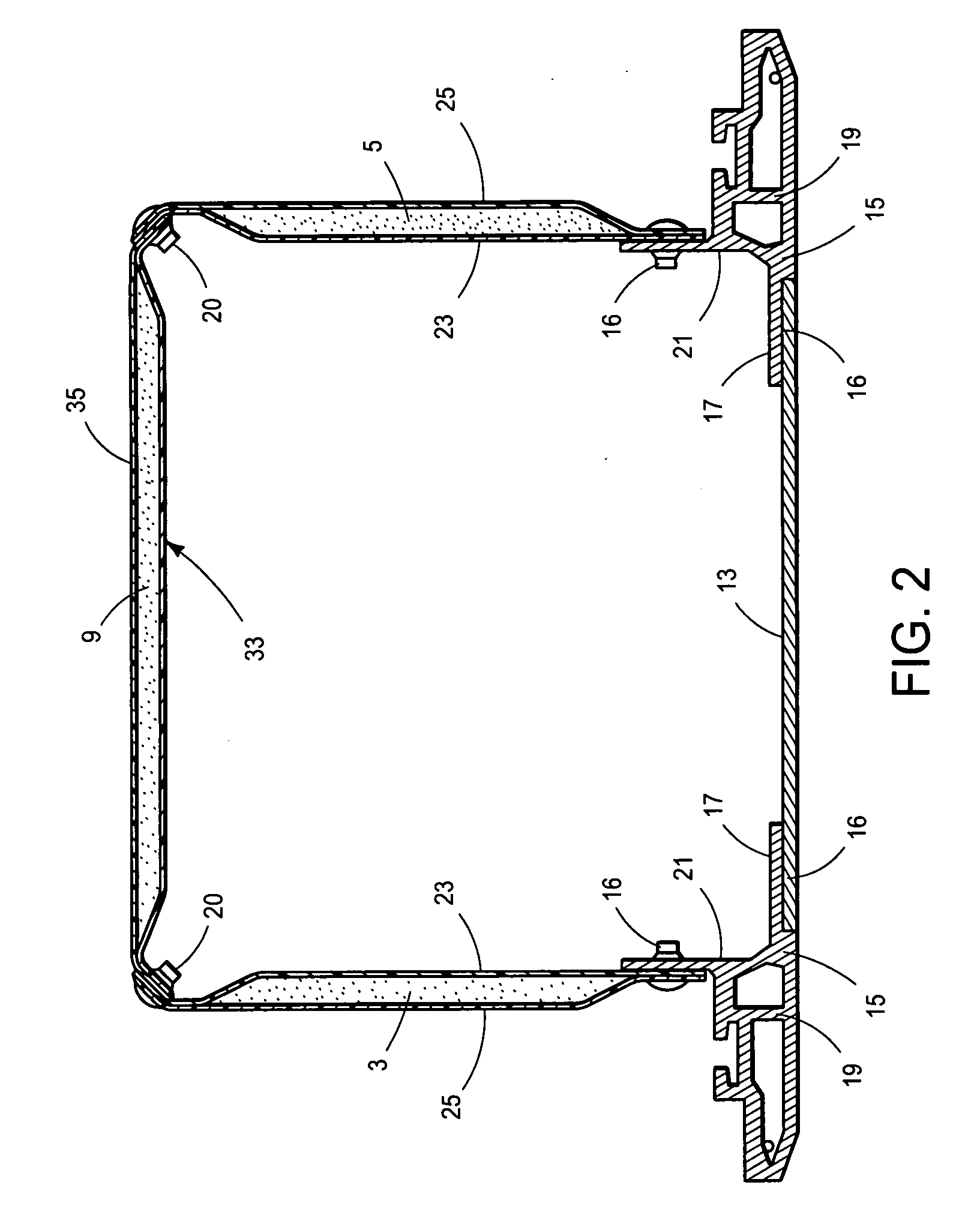Method of thermoforming fiber reinforced thermoplastic sandwich panels, thermoformed articles, and modular container structure assembled therefrom
a technology of thermoplastic sandwich panels and thermoformed articles, which is applied in the direction of hollow wall articles, manufacturing tools, other domestic articles, etc., to achieve the effects of facilitating individual repair/replacement, eliminating load-bearing “stiffening” elements, and high stiffness-to-weight ratio
- Summary
- Abstract
- Description
- Claims
- Application Information
AI Technical Summary
Benefits of technology
Problems solved by technology
Method used
Image
Examples
Embodiment Construction
[0041]FIG. 1 illustrates a schematic perspective view of a container as may be used by example for air cargo applications. The general shape, geometry and scale of the figure is not limiting of the invention's scope or application to air cargo applications; in contrast to sea, land and intermodal containers; rather is shown to aid in the invention's disclosure. Container 1 has a forward end 2 and rearward end 4.
[0042]Container 1 further has two side walls 3 and 5, rear wall 7, top wall 9, base 11 and with opening 6 at forward end 2 which is framed by: base 11; elements 10, 12, 14; and the forward termination of sides 3 and 5, and top 9, opening 6 serving as an access to the interior of the container. Elements 10, 12 and 14 serve as hardware framing members at opening 6 at the forward termination of walls 3, 5 and 9.
[0043]In the inventive embodiment of container 1, walls 3, 5, 7 and 9 are sandwich panels constructed of Fiber Reinforced Thermoplastic (FRTP) skins and low-density core ...
PUM
| Property | Measurement | Unit |
|---|---|---|
| thickness | aaaaa | aaaaa |
| thickness | aaaaa | aaaaa |
| thickness | aaaaa | aaaaa |
Abstract
Description
Claims
Application Information
 Login to View More
Login to View More - R&D
- Intellectual Property
- Life Sciences
- Materials
- Tech Scout
- Unparalleled Data Quality
- Higher Quality Content
- 60% Fewer Hallucinations
Browse by: Latest US Patents, China's latest patents, Technical Efficacy Thesaurus, Application Domain, Technology Topic, Popular Technical Reports.
© 2025 PatSnap. All rights reserved.Legal|Privacy policy|Modern Slavery Act Transparency Statement|Sitemap|About US| Contact US: help@patsnap.com



